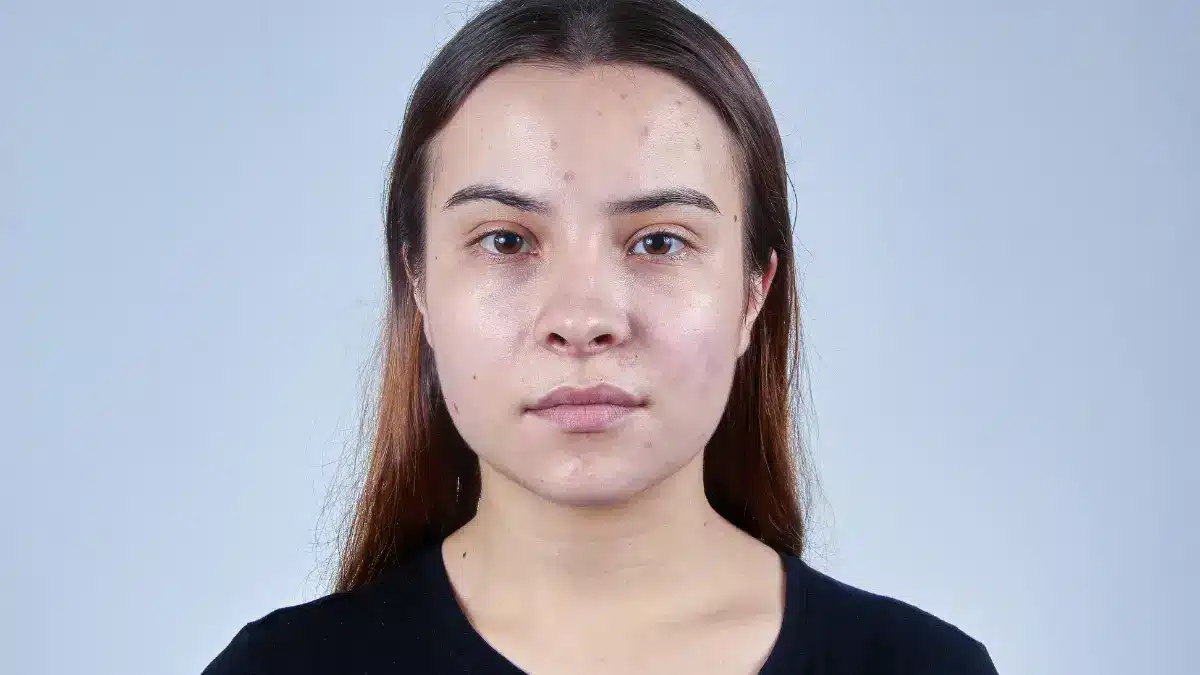PCOS Acne: Causes, Symptoms, Treatments, and Prevention
If you have Polycystic Ovary Syndrome (PCOS), you may have already been frustrated with a range of problems it causes.
Dealing with acne can be another battle you may be unwilling to face.
However, it still happens. PCOS acne is a common issue that many women face.
The prevalence of acne in women with PCOS is estimated at 10-34%.
But you don’t need to worry much as it can be managed.
Read this article to know the causes, symptoms, prevention, and treatment options for PCOS acne.
Causes of acne in PCOS
Polycystic Ovary Syndrome is a hormonal disorder characterized by an imbalance in reproductive hormones, particularly an increase in Androgens.
This hormonal imbalance can lead to various symptoms, including acne.
Increased Androgens stimulate the sebaceous glands in the skin, leading to an overproduction of sebum, an oily substance that clogs the pores.
When the pores become blocked, it creates an ideal environment for the growth of bacteria, resulting in inflammation and the formation of acne lesions.
Symptoms of PCOS acne

PCOS acne tends to differ from regular acne due to its hormonal origins.
PCOS acne pattern typically appears in the following areas rather than the typical T-zone (forehead, nose, and chin) area:
- Face (PCOS face acne is most prominent)
- Neck
- Chest
- Upper back
According to the American Academy of Dermatology Association, acne can be of various types.
The PCOS acne lesions may cause the formation of papules, pustules, nodules, cysts, and scarring.
Moreover, if you are not yet diagnosed with PCOS and are confused about whether your acne is because of this hormonal disorder or not, you can look out for these associated symptoms:
- Menstrual irregularities (no menstrual periods, frequently missed periods, heavy bleeding in periods, etc.)
- Infertility
- Excess hair growth (on the face, chest, belly, or upper thighs)
- Weight gain
- Patches of thickened and dark skin
PCOS acne treatment
Managing PCOS acne involves a multifaceted approach.
A PCOS acne treatment should be designed to target the underlying hormonal imbalance while addressing the skin’s specific needs.
Here are some effective treatment options:
Hormonal therapy
Oral contraceptives are a popular treatment method to regulate hormone levels in PCOS.
It can also aid in reducing acne breakouts.
Even the U.S. Food and Drug Administration has approved some oral contraceptives for treating acne.
Anti-Androgens
As the name suggests, anti-Androgens help block the working of Androgens in the body.
Anti-androgen medications, such as Spironolactone (Aldactone), can help block the effects of excess Androgens. This can cause a reduction in PCOS acne formation.
Acne medications
Medications used to treat acne along with PCOS medications can help get rid of PCOS acne faster.
According to the Journal of the American Academy of Dermatology, incorporating topical treatments can help unclog pores, reduce inflammation, and reduce acne.
The treatments can contain medications like:
- Salicylic acid
- Benzoyl peroxide
- Retinoids
- Topical antibiotics
- Aluminum chloride
Prevention tips for acne
If you have acne, try some preventive measures that may help reduce acne and its effects.
Here are some of the helpful prevention tips for acne:
Skincare
Skincare is essential for everyone, especially for people with acne-prone skin.
You can do gentle cleansing with non-comedogenic (non-pore-clogging) products.
It can help keep the skin clean and prevent anything from getting stuck in your pores.
Oil-free moisturizers and sunscreen are essential to prevent excessive dryness and protect the skin from UV damage without making your skin more oily.
Diet

A good diet can also help in preventing or reducing acne.
Your PCOS diet should have a low-glycemic diet containing fresh vegetables, fruits, beans, and steel-cut oats.
Moreover, you should avoid the following food items:
- White bread
- Corn flakes
- Puffed rice
- Potato chips
- White potatoes or fries
- Doughnuts or other pastries
- Sugary drinks such as milkshakes
- White rice
Takeaway
PCOS acne is a common and distressing symptom experienced by many women with this hormonal disorder.
It occurs because of excess sebum production due to an increased level of Androgens.
You will mainly notice PCOS acne on the face, chest, neck, and upper back.
However, there is hope for managing and treating this condition effectively.
By understanding the underlying hormonal imbalances and their impact on the skin, it is possible to develop a comprehensive approach to combat PCOS acne.
Prevention measures, such as maintaining a healthy diet and using non-comedogenic products, can also significantly reduce acne.
Frequently Asked Questions
What does PCOS acne look like?
PCOS acne often appears as deep, cystic lesions on the face, chin, upper back, and neck. These acne lesions can be painful and inflamed and may leave behind scars. It can be more severe and persistent compared to regular acne.
How to cure PCOS acne naturally?
To manage PCOS acne naturally, follow a low-glycemic diet with whole foods, and avoid processed sugars and refined carbohydrates. Additionally, use non-comedogenic skincare products, cleanse gently, and moisturize regularly to maintain healthy skin.
Does PCOS acne ever go away?
Polycystic Ovary Syndrome (PCOS) is primarily driven by the underlying hormonal imbalance. When the hormonal balance is established again, it may aid in reducing PCOS acne. Moreover, proper treatment and lifestyle changes can effectively manage and minimize PCOS acne.
What foods trigger PCOS acne?
Many food items can be harmful if you have Polycystic Ovary Syndrome (PCOS). It includes white bread, cornflakes, puffed rice, potato chips, white potatoes or fries, doughnuts or other pastries, sugary drinks such as milkshakes, white rice, etc.
WowRx uses only high-quality sources while writing our articles. Please read our content information policy to know more about how we keep our content reliable and trustworthy.






